
The New Zealand national rugby union team, commonly known as the All Blacks, represents New Zealand in men's international rugby union, which is considered the country's national sport. Famed for their international success, the All Blacks have often been regarded as one of the most successful sports teams in history.
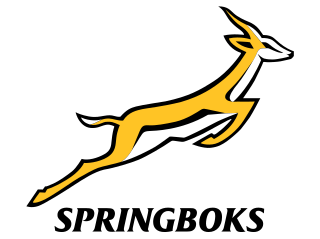
The South Africa national rugby union team, commonly known as the Springboks, is the country's national team governed by the South African Rugby Union. The Springboks play in green and gold jerseys with white shorts, and their emblem is the Springbok, a native antelope and the national animal of South Africa. The team has represented South African Rugby Union in international rugby union since 30 July 1891, when they played their first test match against a British Isles touring team. Currently, the Springboks are the top-ranked rugby team in the world and reigning World Champions, having won the World Cup a record four times. South Africa have won half of the Rugby World Cups they have participated in and are also the second nation to win the World Cup consecutively.

New Zealand Rugby (NZR) is the governing body of rugby union in New Zealand. It was founded in 1892 as the New Zealand Rugby Football Union (NZRFU), 12 years after the first provincial unions in New Zealand. In 1949 it became an affiliate to the International Rugby Football Board, now known as World Rugby, the governing body of rugby union for the world. It dropped the word "Football" from its name in 2006. The brand name New Zealand Rugby was adopted in 2013. Officially, it is an incorporated society with the name New Zealand Rugby Union Incorporated.
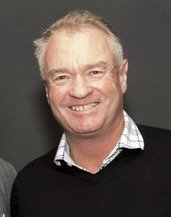
Grant James Fox is a former rugby union player from New Zealand. He was a member of the All Blacks team that won the inaugural Rugby World Cup in 1987. He is also the father of professional golfer, Ryan Fox. Fox holds the world record for most points scored in a Rugby World Cup tournament of 126 in the 1987 Rugby World Cup. He also holds the world record for most conversions in one world cup tournament of 30 also from the same 1987 cup.
The All Blacks XV is the second national rugby union team of New Zealand, after the All Blacks. New Zealand's second national team has had numerous names in its history: Junior All Blacks, New Zealand XV, New Zealand A, New Zealand B, All Blacks XV.
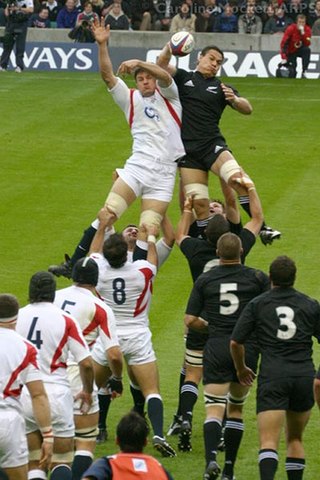
Rugby union has been played in New Zealand since 1870 and is the most popular sport in the country as well as being its national sport.
John Kahukura Raymond Timu is a New Zealand former rugby league and rugby union footballer who played in the 1980s and 1990s who achieved international selection for New Zealand in both rugby codes, appearing in 26 tests for the All Blacks in union and nine for the Kiwis in league. Timu's usual position was centre in league and in union he would play at full-back or on the wing.
The Cavaliers was an unofficial New Zealand rugby union team which toured South Africa in 1986. Because of the Apartheid policies of the South African government, the official New Zealand Rugby Union tour scheduled for 1985 was cancelled, and the Cavaliers tour was very controversial in New Zealand.

In 1928, the New Zealand national rugby union team undertook a three-month tour of South Africa. The series of four Test matches was drawn 2–2 and the overall tour record was sixteen wins, five losses and one draw.
1949 saw the second full tour of South Africa by a representative New Zealand rugby union team. The All Blacks achieved a record of 13 wins, 7 losses and 4 draws, and they lost the test series 4–0.
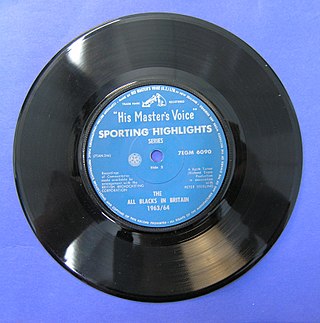
The 1963–64 New Zealand tour of Britain, Ireland and France was a rugby union tour undertaken by the New Zealand national rugby union team. The tour took in the five major Northern Hemisphere rugby nations of England, Scotland, Ireland, Wales and France. The tour also took in matches against club opposition and invitational county teams, ending in Europe with an encounter with the Barbarians. The final two games of the tour were played in Canada.

The 1907–1908 New Zealand rugby tour of Australia and Great Britain was made by a group of New Zealand rugby footballers who played matches in Australia, Ceylon, England and Wales between 1907 and 1908. Most of the matches were played under the rules of the Northern Union, a sport that is today known as rugby league. As such, the team were the immediate predecessors of the New Zealand national rugby league team. The tour had a large role in establishing rugby league in both Australia and New Zealand, and also gave birth to international rugby league. The tour party has come to be known as the professional All Blacks or All Golds, although at the time they were commonly referred to as the All Blacks—a named popularised by the New Zealand rugby union team that toured the Northern Hemisphere in 1905.
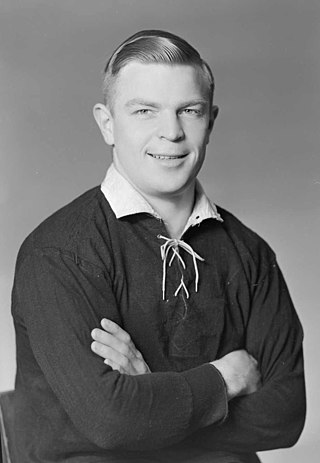
Peter "Sammy" Henderson was a New Zealand rugby union and rugby league footballer. He also competed at the 1950 British Empire Games in Auckland, winning a bronze medal in the 4 x 110 yards men's relay.

The 1921 South Africa rugby union tour of Australia and New Zealand was the third tour made by the Springboks rugby team, and their first tour to Australia and New Zealand. South Africa played three Test matches against the All Blacks. The series was drawn 1–all, and the long-running controversy between the countries over the All Blacks' inclusion of Maori players began.
In June 2012, Ireland toured New Zealand playing three Tests against the All Blacks. The Irish tour was one in a series of tours by northern teams to be hosted by southern hemisphere nations. It was marketed as the 'Steinlager Series'.
The 1968 New Zealand tour rugby to Australia and Fiji was the 21st tour by the New Zealand national rugby union team to Australia, concluding with a match against Fiji in Suva, Fiji.
The 1960 New Zealand rugby union tour of South Africa, was a series of rugby union matches played by the New Zealand national rugby union team in South Africa and Rhodesia.

Rugby union has a long history in New Zealand. Today, New Zealand holds tier one status with World Rugby.
Jack Clowes, was an American-born British rugby union footballer of the 1880s, who played in Yorkshire for Halifax, and was selected to play at a representative level for the British Isles on the 1888 British Lions tour to New Zealand and Australia, the first tour by a team representing the British Isles. Clowes is notable for having been prohibited from playing on that 1888 tour due to the Rugby Football Union deeming him a professional, and for the subsequent ramifications of his case contributing to the creation of the Northern Rugby Football Union in 1895.











